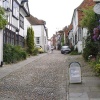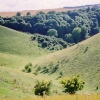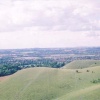Please login or click here to join.
Forgot Password? Click Here to reset pasword
 |  |  |  |  |  |
| Craig Breakey Posts: 268 Joined: 19th Nov 2008 Location: UK | quotePosted at 10:25 on 31st January 2009 Can anybody tell me, If there are any benefits in taking a longer exposure. And what length of time would bring the best results. |
| Paul Hilton Posts: 2605 Joined: 21st Nov 2004 Location: UK | quotePosted at 15:54 on 31st January 2009 First set Iso to lowest setting. will give benefit of increased depth of field,referably with something in the foreground. You might want to have water seem more flowing that freezing its' movement, try 1/2 to 2 seconds for a start or longer if apaturesetting will allow it, for streams or seaside for example. Needless to say, camera on a tripod. |
| Craig Breakey Posts: 268 Joined: 19th Nov 2008 Location: UK | quotePosted at 16:05 on 31st January 2009 Thanks Paul I will give it a try. |
| Rob Morris Posts: 36 Joined: 9th Aug 2009 Location: USA | quotePosted at 23:29 on 11th September 2009 If you find that it's too bright outside for longer exposures causing overexposure, invest in a ND filter (neutral density). This will allow for longer exposures in well lit areas, here is a link so you can see them http://www.2filter.com/prices/nd_filters.htm. You didn't mention what type of camera you have, that might help. |
Shaun Wilson Posts: 1832 Joined: 23rd Dec 2009 Location: UK | quotePosted at 11:13 on 27th February 2010 i found this book really helps gives very good tips on every think The Digital Photography Book: The Step-by-step Secrets for How to Make Your Photos Look Like the Pros'! (Paperback)by Scott Kelby (Author)
|
| Mike Franklin Posts: 13 Joined: 10th Sep 2010 Location: UK | quotePosted at 20:05 on 11th September 2010 Craig, I've bought myself a 10-stop ND Filter (£30). This decreases the light coming into the camera allowing for some really long exposures during the day. I've yet to use it to it's full potential but search on Flickr for 'ND-110'. As Paul says, tripod is a must. Even invest in a remote release. I've a Nikon D40 and I bought one for £10. |
| Rod Burkey Posts: 554 Joined: 2nd Sep 2008 Location: UK | quotePosted at 09:15 on 13th September 2010 Longer exposures work for all the reasons given by Paul Rob & Mike. Caution should be used when taking pictures involving situations like wind which can cause a field of wheat or long grass to change into a blur which can be very interesting but sometimes just an affectation. It's all about taste. I should use a tripod far more often to take advantage of longer exposures and the advantages of so doing but, in truth most of the time lugging a tripod around can be a bit of a chore for me. Horses for courses. Must put the tripod back in the car boot (trunk)! Upping the ISO levels can also provide some striking results with sensors now ever better.
|
Shaun Wilson Posts: 1832 Joined: 23rd Dec 2009 Location: UK | quotePosted at 20:47 on 13th September 2010 try this Many new cameras will come with built-in shutter speeds of up to 30 seconds or longer, which is enough for most long-exposure photography. Other cameras will have a B (bulb) setting that will keep the shutter open as long as you keep your finger on the shutter release button or a T (time) exposure setting that will keep the shutter open until you press the shutter release button a second time. Cameras with bulb settings can also be fitted with a locking cable release so that it isn't necessary to keep your finger on the shutter for long exposures. If your camera doesn't have a cable release, you can use the self-timer option found on most cameras. This will eliminate camera vibration from your hands.
hope this helps |
| Mike Franklin Posts: 13 Joined: 10th Sep 2010 Location: UK | quotePosted at 21:11 on 13th September 2010 |
| Mike Franklin Posts: 13 Joined: 10th Sep 2010 Location: UK | quotePosted at 21:12 on 13th September 2010 Mmmm, for some reason my smileys and image insertions are not showing up... Any ideas? |